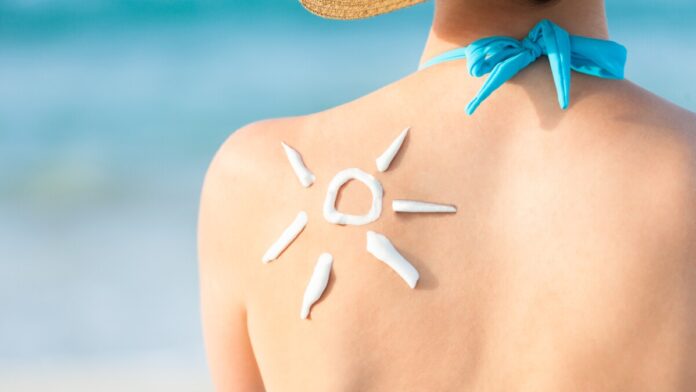Sunscreen Myths
Everyone is aware of the basics of sunscreen like wear SPF daily, reapply it diligently, etc. Even the most skin-aware among us, however, are susceptible to common misconceptions that can lead to UV damage, premature ageing, and even an increased risk of skin cancer. If you can’t avoid the Sun, the best approach to protect your skin is to use sunscreen and sunblock. A broad-spectrum sunscreen that protects against both UVA and UVB radiation is very important. Here are some common misconceptions about sunscreen that you need to stop believing.
Myth 1: The Higher The SPF, The Better
The sun protection factor (SPF) relates to how much of the Sun’s rays the sunscreen blocks, not how long it lasts. Studies suggest that the Sun and moisture break down or wash away some of the protecting compounds of sunscreen. In short, you need to apply sunscreen every two hours regardless of the SPF level. People actually apply only one-third of the recommended amount. If you’re not good at slathering it on, aim for an SPF of 50 or greater.
Myth 2: Sunscreen Will Affect Your Vitamin D Levels
Vitamin D is known as the “sunshine vitamin,” which is essential for bone health and is involved in everything from immunological function to muscular function.UVB light is blocked by sunscreen, which prevents sunburn. In theory, this means that using sunscreen reduces vitamin D levels. However, because few people use enough sunscreen to prevent all UVB radiation or use sunscreen infrequently, the effects of sunscreen on vitamin D may not be significant. If you are still afraid, you can increase your vitamin D levels with the help of foods like salmon, oats, cow’s milk, orange juice, eggs, tuna, etc.
Myth 3: Car Windows Block The Sun
Although car windshields are normally composed of laminated glass that filters UVB and UVA radiation, side and rear windows are not. This implies that only UVB rays are blocked, not UVA rays, which penetrate deeper into the skin. According to a study published in the Journal of the American of Dermatology, researchers discovered that persons who drove were more likely to get skin cancer on the left side of their face and body exposed to the Sun. The simple solution is to wear sunscreen or protective gear like a long-sleeved shirt if you’ll be in the car for more than a few minutes.
Myth 4: Sunscreen Can Be Made At Home
No evidence suggests that any homemade formula can help you make a sunscreen that is as safe and formulated as the commercial one. Ingredients used to make sunscreen are neither available nor easily mixed by a customer. Go for a sunscreen that soaks into the skin easily and does not cause irritation. Also, consult a certified dermatologist to chose the best sunscreen suitable for your skin.
Myth 5: Sunscreen Is Waterproof
Water-resistant or sweat-resistant sunscreen, as well as sunscreen advertised for sports, may appear to be waterproof. Unfortunately, this is an exaggeration of the benefits of sunscreen. Studies suggest that no sunscreen product can be completely waterproof. After being in the water, people must always reapply water-resistant sunscreen. Allow at least 10 to 15 minutes for sunscreen to absorb into the skin before entering the water.
Myth 6: You Do Not Sunscreen If You Have Dark Skin
If you believe this, stop now! Dark skin is just as susceptible to sun damage as any other. Some individuals assume that those who have a lot of melanin in their skin do not require sunscreen. This is because melanin diffuses UVB rays and may, to some extent, protect against sunburns. People with darker skin still need to apply a broad spectrum of sunscreen. UVA damage is not prevented in the same way by melanin, which can cause accelerated skin ageing and wrinkles. Melanin will not protect the skin against prolonged sun exposure, such as sitting in the Sun unprotected for lengthy periods. Darker-skinned people are also not immune to skin cancer.


